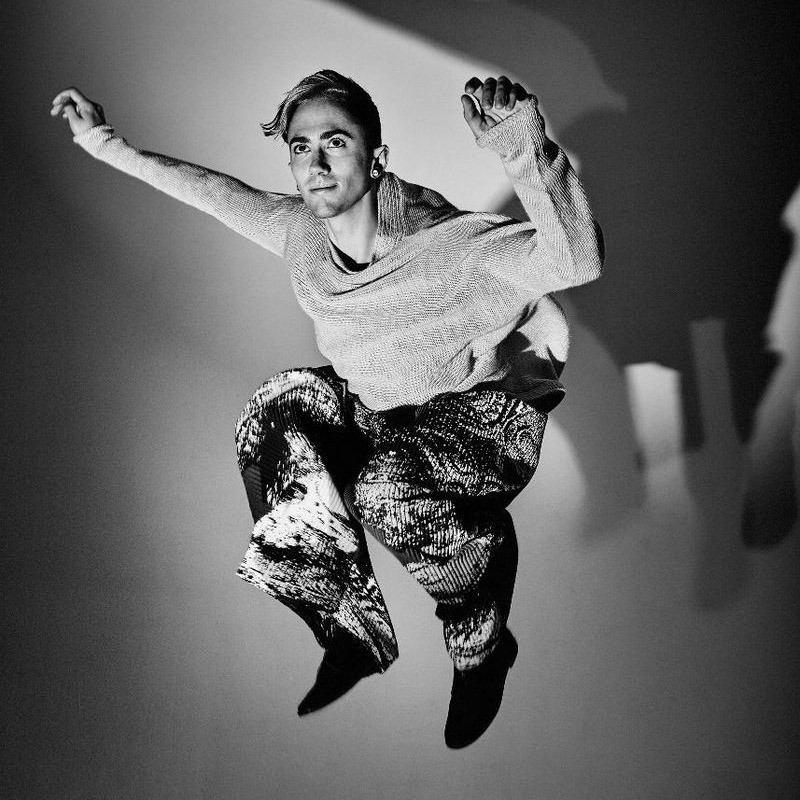So, not yet 20, Caleb Teicher, of Mahopac, New York (population 8,203), scooped up some tap shoes, blew into the Big Apple, found some footlights, and crowned a rookie season with the 2011 Bessie Award for Outstanding Individual Performance in the tap extravaganza Body Madness: A Shared Evening. Today, Teicher appears with the Orpheus Chamber Orchestra at PS21, a microscopic institution with astronomical dreams in the Hudson Valley community of Chatham—a little town, as Garrison Keillor might put it, that time forgot and the decades cannot improve.
Some artists sell, and for them it’s a good thing. Teicher, who uses gender-neutral pronouns, does not, and that’s good, too. Synapses firing at the speed of light, they remain cool at the core, staking out a zone all their own. They’re a dancing Buster Keaton—features composed, never commenting, co-conspiring, or telling a spectator what to think. Their head floats lightly at the top of their spine, limbs limber through every joint. The dazzlements just keep on coming: lacy footwork, slides and glides, grasshopper leaps, lightning kicks, all to the mesmerizing staccato fantasia of their taps, embellishments varying from night to night.

